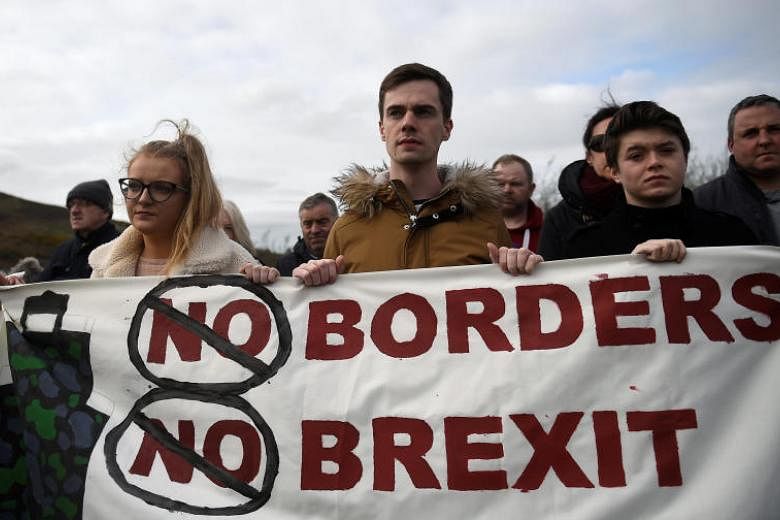LONDON (REUTERS) - With Britain's Parliament deadlocked over the way forward on Brexit, speculation was growing on Sunday (March 31) that Prime Minister Theresa May could call a snap election to try and break the impasse.
Last week, after her Brexit deal was rejected by Parliament for a third time, Mrs May's comment that she feared "we are reaching the limits of this process in this House" was seen by many as a hint she could be moving towards an election.
The Sunday Times reported her media chief, Mr Robbie Gibb, and her political aide Stephen Parkinson were pushing for an election.
But the deputy chair of her Conservatives, Mr James Cleverly said on Sunday the party was not planning for an election, while Justice Minister David Gauke warned it would not solve the issue over the way forward on Brexit.
In 2017, Mrs May lost her party's majority in Parliament in an election she did not need to call.
It has since been reliant on the support of Northern Ireland's Democratic Unionist Party, which has voted against her Brexit deal all three times.
HOW CAN AN ELECTION BE CALLED?
Britain's next national election is not due to be held until 2022, but there are two ways an earlier vote can be called:
1) Two-thirds of Parliament's 650 lawmakers would have to vote in favour of holding an election.
2) If a motion of no confidence in the government is passed by a simple majority of lawmakers and no party can succeed in winning the confidence of the House of Commons over the next 14 days, an election is triggered.
Many of Mrs May's Conservatives oppose the idea of an election.
If she cannot persuade enough of her party to support an election, Mrs May could be forced to back a no-confidence vote in her own government in order to try to trigger one.
WHO WOULD LEAD THE CONSERVATIVES INTO AN ELECTION?
Last week, in a bid to win Conservative lawmakers over to her deal, Mrs May promised to step down before the next phase of Brexit negotiations if her deal was approved by Parliament. She has previously said she would not contest the 2022 election.
Mrs May's deal was rejected for a third time on Friday. Even if she were to agree to go sooner, a Conservative leadership contest is likely to take weeks at a minimum.
On Sunday, Conservative deputy chairman James Cleverly told Sky News it was "the inevitable possibility" that Mrs May could have to lead the party in a snap election if one were held.
WHAT WOULD THE CONSERVATIVES' POSITION BE ON BREXIT?
One of the biggest difficulties about an election would be the question of what the Conservative Party's election manifesto would say on Brexit.
The party is deeply divided on the issue. Half of Mrs May's lawmakers voted in favour of a 'no deal' Brexit when Parliament voted on alternative Brexit options last week, while 34 supported seeking a customs union with the EU and eight backed a confirmatory public vote on any deal.
Many lawmakers are likely to be unhappy standing on a manifesto which pledged to implement Mrs May's deal. More than 100 Conservative lawmakers opposed the deal when it was first voted on in January, 75 voted against it at the second try and 34 at the third attempt on Friday.
WHAT DO THE OPINION POLLS SAY?
A poll by Opinium published on Sunday put Mrs May's Conservatives and the opposition Labour Party level on 35 percentage points each.
A separate poll by Deltapoll in the Mail on Sunday gave Labour 41 per cent, a lead of five percentage points over the Conservatives, who were on 36 per cent.
HOW QUICKLY COULD AN ELECTION BE HELD?
Britain is due to leave the EU on April 12 unless it sets out an alternative way forward on Brexit. The government would need to seek a longer delay to the Article 50 negotiating period in order to hold a national election.
It is likely the EU would agree to this, although it is not guaranteed. Mrs May has said any longer delay would mean Britain taking part in European Parliament elections.
According to a possible timetable set out by the Institute for Government, an election could be held as soon as mid-late May. If is triggered by a no confidence vote, it would be slightly later due to the 14-day period.











